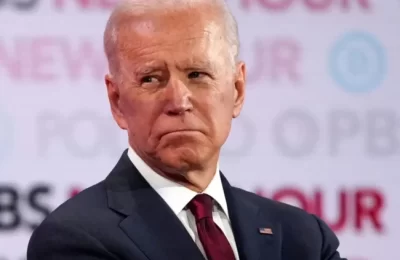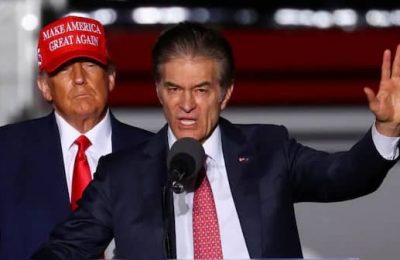Nigerians are disappointed that their long wait for reasonably priced and affordable petrol promised by Alhaji Aliko Dangote, owner of the Dangote Refinery turned out otherwise when the product was finally rolled out.
Many were shocked when the Nigerian National Petroleum Corporation Limited (NNPCL), the initial off-taker of the product for retail sale announced that it bought it at N898/litre adding that it would sell the product at a price ranging from N950/litre in Lagos to N1,100/litre in different parts of the country, having added the statutory charges and other costs.
The realization that the price at which the product was sold to NNPC was even higher than the prevailing market price of around N850/litre, which was attributed to the scarcity of the product before the Dangote Refinery roll out, left many in disbelief. But NNPC explained that the N898/litre price it secured was even the outcome of the downward negotiation of a higher price initially offered by the refinery.

Surprisingly, in a swift but scathing reaction, Dangote Refinery condemned the NNPC statement arguing that it sold the initial supply to the NNPC in dollars but it did not disclose the price in dollars and how much it would amount to per litre if converted to naira. In the ensuing circumstance, the question begging for answer was whether NNPC was not allowed to convert the dollar price it bought the fuel to the equivalent in naira more so as it would not sell to consumers in dollars but in naira.
However, the most disturbing aspect of Dangote Refinery’s rebuttal was how it dismissed the NNPC›s price disclosure as misleading, mischievous and malicious claiming that it was deliberately aimed at undermining the achievements recorded by the refinery towards addressing energy insufficiency and insecurity in the country. It further stated that it sold the product to NNPC “with a lot of savings”
Dangote refinery›s claim of savings apparently gave many people, including some eminent Nigerians, the impression that NNPC may be hiding something and was probably standing in the way of cheaper pricing of the product. This fear led to calls for the corporation to renounce its sole off taker status and allow other buyers, namely the major marketers and the independent marketers to also buy directly from Dangote, if this will bring about favourable competitive prices.
Demonstrating that it had nothing to hide, NNPC welcomed the call, following which Dangote Refinery began to sell to the major marketers at N766/litre, less than the price it sold to NNPC. It is not yet known how much the refinery will sell the product to Independent marketers when they take their turn to lift the product after their separate negotiation with the Refinery›s management.

Though Dangote has not explained why his refinery sold the product at different prices to NNPC and the major marketers, it is apparent that neither of the prices with the additional costs will give Nigerians the relief or comfort they thought the intervention of the refinery would bring them in terms of product affordability.. The situation seems worse than before for ordinary Nigerians for whom petrol has become a household energy source for powering their small-scale business appliances to make ends meet as electricity supply is either unreliable or hardly ever available.
Industry experts had foreseen this outcome in the build up to the roll out of the product and had warned that Nigerians were expecting too much from the refinery and may be disappointed in the end. But many would rather listen to the head of the Dangote Group who went on media campaign boasting that he could solve the twin problem of availability and affordability of fuel in the country at a go once the product was rolled out.
Since the rollout, Dangote has not addressed the citizenry on how things turned out this way and whether they should expect some relief in the near future as more factors come into play such as the efforts by government and NNPC to facilitate the sale of crude oil to local refiners in naira in order to ease production challenges thereby ensuring affordable competitive product pricing for the benefit of the citizens.
Some stakeholders are not surprised by this attitude which they described as characteristic of Dangote. According to them, though he is a philanthropist, he is a shrewd businessman and the survivability of his enterprise comes first. They pointed to his record in some major sectors of the economy such as the cement and sugar industries where he has built monopolies and prices of commodities have remained high despite directives and appeals by government to find ways of bringing prices down to a reasonable level.
Some say he is feared in business circles for his business practices which are allegedly more often than not inclined to edging out competitors in his line of business to gain dominion of the industrial space and dictate happenings in the environment. This fear may be far-fetched but government should not take it lightly.
The oil and gas industry is full of big players and it is constantly under government scrutiny because of its importance to the economy of the nation. It is unlikely that somebody would be able to create a monopoly that would hold the industry to ransom unless the government allowed it. Yes, it may not seem so now but government must be conscious of the possibility as it implements its new policies to make the industry all-inclusive in the interest of all stakeholders.
In this regard, all eyes may be on the NNPC and the regulatory agencies in the oil industry in the ensuing months to ensure that the crude for naira policy which is aimed at creating a sustainable conducive environment for local refiners to thrive is closely monitored to achieve the desired result. Hopefully, this would ultimately put an end to the endemic fuel crisis as well as make the industry viable for increased export earnings.
It must be noted, however, that Dangote has always had a way of securing the sympathy and support of the government of the day in this country to advance his business interests. With this relationship he had continued, over the years, to secure assistance in tax waivers and other incentives to grow and sustain his businesses, making sure they were always in the forefront of any sector where they operated.
Like previous governments, the Tinubu administration has also been inclined to him, more so as the genuine desperation of the administration to conquer the fuel crisis in the country has made the Dangote Refinery the centre of attraction at the moment. In his usual way, Dangote has leveraged on this platform to secure half of the crude capacity requirement of his refinery as the NNPC begins to supply the refinery 385,000 barrels of crude oil per day from October 1 which is next month.
Many oil industry analysts had thought it was not possible to secure up to that quantity for the refinery as it is reportedly almost the entire crude currently accruing to the Federal Government from its joint venture partnerships with the international oil companies (IOCs) on shore. But government found a way to mobilize it after Dangote had accused almost every stakeholder that mattered in the oil industry of attempting to sabotage his refinery.
This country has done so much for Dangote up to the current administration. It behooves him to make sacrifices for the interests of the nation in return rather than focussing so much on money making to improve his profile in the competition of the world›s richest men. There is much he can do in the current fuel crisis to ameliorate the pains of the citizens if he would choose to.
More importantly, as the nation appears to be at his mercy in the present circumstances, there is need for him to take responsibility and honour the substantive agreements reached on the supply of fuel to the market in record time. This is not happening presently due to his refinery›s alleged challenges as it is still building infrastructure to address these issues. The public is aware that his refinery has not been able to substantially meet the 25 million litres daily supply of fuel to the market due to the challenges, even though he is not talking about. It would not be fair to take the country for granted
While the government has done well in partnership with the Dangote Refinery to turnaround the fuel situation, all the agencies involved in driving this partnership such as the NNPC and the regulatory agencies in the downstream oil sector need to engage the management of the refinery with the authority vested in them to achieve results. So far it appears that the management of the refinery does not have much respect for these critical stakeholders if its treatment of NNPC is anything to go by. Nothing should be taken for granted.
READ ALSO: Flood: 11 dead, 41,192 displaced in three Niger LGAs







